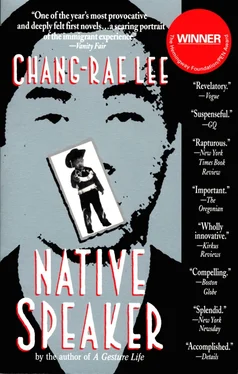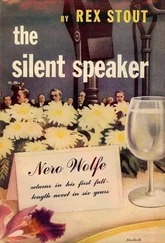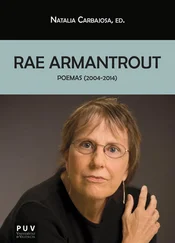“I’ve got to go,” I told him.
“Fine, fine. When are you going to show up here?”
“Not for a few days. I’ve got to work on some things.”
“I heard,” he said, thickly. “Where’s Lelia? Grace said she finally came back.”
I paused. “She’s around.”
“Good. I want my people happy. I want you happy, Harry. I need you that way, for all our sake. It’s imperative.”
“You’re right, boss, I want to be happy.”
“Fantastic. Good dreams. And come in soon. I mean it.”
I hung up. But after twenty minutes of tossing I got out of bed. I usually couldn’t sleep after his calls, not so much from anything he would say. It was mostly his tone that kept me awake, the lingering question of it, the brand of itch that was his voice. I could never simply ignore it, put it off, and I would rise and in half-sleep drift about the darkness of the large apartment, inexplicably checking the corners and the closets for things out of the ordinary, an unmatched shoe, a coat fallen from a hanger, a tie I didn’t recognize, those tiny marks of what can go on while you sleep. Of course it was just my drowsy madness, though it dawned on me that I had become more like Hoagland than I would have liked to admit. My years with him and the rest of them, even good Jack, had somehow colored me funny, marked me.
But I knew Hoagland, in truth, was taking it easy on me. His phone calls were just payback for the recent cushion he had given me. For the only time in the last few months I had gone out on assignment, actually courted a live body, I had nearly blown cover.
It was when Lelia was away. He was a Filipino psychoanalyst, a Marcos sympathizer. Emile Luzan, Ph.D. I was one of his patients. I was a successful mortgage broker, married, seemingly poised at the sweet prime of my life. But I was troubled. I was drinking three or four cocktails a day. I wasn’t making love to my wife. I couldn’t sleep at night and I had sudden fits of anger and sadness. I was eating too much. I told him that a Dr. Hoagland had referred me. Depression, first episode.
“You’ll be fine,” Luzan said to me gently. “You’ll be yourself again, I promise.”
In the initial period everything was going well. Our sessions were becoming increasingly intense. I was elaborating upon my “legend” consistently and Luzan accepted my pathologies. The legend was something each of us wrote out in preparation for any assignment. It was an extraordinarily extensive “story” of who we were, an autobiography as such, often evolving to develop even the minutiae of life experience, countless facts and figures, though it also required a truthful ontological bearing, a certain presence of character.
In his earnestness, Dr. Luzan kept delving further into my psyche, plumbing the depths. I was developing into a model case. Of course I was switching between him and me, getting piecemeals of the doctor with projections in an almost classical mode, but for the first time I found myself at moments running short of my story, my chosen narrative. Normally I would have ceased matters temporarily, retreated to Westchester to reiterate and revise. But inexplicably I began stringing the legend back upon myself. I was no longer extrapolating; I was looping it through the core, freely talking about my life, suddenly breaching the confidences of my father and my mother and my wife. I even spoke to him about a lost dead son. I was becoming dangerously frank, inconsistently schizophrenic. I ceased listening to him altogether. Like a good doctor he let me go on and on, and in moments I felt he was the only one in the world who might comfort me. I genuinely began to like him. I looked forward to our fifty-minute sessions on Thursday mornings, enough so that we began meeting on Mondays as well. Hoagland assumed I was stepping up the operation. When I was in the chair across the desk from Luzan I completely lost myself. I was becoming a dependent, a friend. Hoagland, not hearing from me, sent in Jack Kalantzakos to retrieve my remains, my exposed bones.
I knew Hoagland was still wondering if he had done so in time.
He wanted me back with the program. John Kwang, the city councilman, was going to get me back to my old self. I had been vaguely following his career, out of my own interest.
John Kwang was Korean, slightly younger than my father would have been, though he spoke a beautiful, almost formal English. He had a JD-MBA from Fordham. He was a self-made millionaire. The pundits spoke of his integrity, his intelligence. His party was pressuring him for the mayoral race. He looked impressive on television. Handsome, irreproachable. Silver around the edges. A little unbeatable. Given my last assignment, I wouldn’t have been surprised if Hoagland had given him to Pete Ichibata. But there wouldn’t be a problem, he told me, not a problem for anyone. The job would be simple, uncomplicated. A brief background study. A primer. Just a collection of some personal items, arrived at slowly, from a distance. I might not even have to speak with the councilman. Hoagland almost promised as much. He said it was going to be titty. A walk in the woods. Pie.
But here I was, roaming the apartment again. Middle of the night. Trying knobs, the window locks. I never liked the place much. I never got over its main feature, that it really had no walls, just one built-in partition to set off the bedroom from the larger space. The one and only bathroom was by the front door, set into a corner. The place went very wrong for Lelia and me, at some point. It was one of those lofts you see in movies and at parties, the one cavernous nearly-empty room of windows and hardwood flooring, some exposed brick, steam pipes. The kind of place you see pictured in ads, where the bed lies beneath a basketball net and a Harley is parked beside the nightstand. A surprisingly dysfunctional space. It was often an inappropriate temperature. It was much too big. You felt you were living in the wrong scale. Our old cat, Boo, despised it, she was always nervous, riding the walls. To break her of this I put her dish in the center of the room. She would sneak up on it, take a few bites, shoot back. She lost too much weight so I stopped. But then I must remember how our son once loved the place: I can still see Mitt running wind sprints back and forth down the length of the room, hear the patter of his socked feet, see him sliding the last few yards, twirling to a halt, some beautiful kid.
Lelia and I tended to dwell in the corners, along the periphery. She inherited the apartment from her uncle Steven, who loved her and lived alone and died of AIDS. At first we thought we liked the place, the obscene white expanse of it. We even got into the adolescent notion of making love on every last coordinate of the space, thinking that these personal acts of colonialism would somehow help us acclimatize. But later the expanse and room were easy excuses for not seeing one another. The apartment became a little city with naturally separate habitats, her own private boroughs, and mine.
We did like the bath. Steven had installed an oversized waist-deep tub a few months before he died. I don’t think he used it much. We did, almost nightly, during our first two winters. We used to scrub each other with a large sponge and a wiry padded mitten for our backs. Lelia didn’t believe in bubbles. We used epsom salts if anything. We had a big block of brown soap from which we shaved slivers with an old cheese knife. We’d light six or seven candles so that there was plenty of light to see each other. We liked to squat in the hot water with me behind her and crossing my arms so that I wrapped her breasts like belts of ammunition. Sometimes she would grab the backs of my knees and lift me onto her shoulders and slowly walk me around the tub. She took pronounced, heaving steps, and hummed something low with the stammer of each step. I always feared we might fall.
Читать дальше












